The Truth About The World’s Most Expensive Coffee Will Shock You To The Core

Coffee is the most favorite beverage that is brewed in every house and is severed the most in all the cafes and restaurants. But coffee is also a beverage that can be found in cheap as well as expensive rates. Let us know about the world’s most expensive coffee served.
World’s Most Expensive Coffee
We all love our Cup of Joe, don’t we? I recently came across a very different and unique fact related to coffee. I think I should share it with all my readers.
The story of how this coffee is sourced is something that caught my interest. It was quite intriguing honestly!
They told me that this coffee is priced as high as $30-80 in the US or ₹2000/- per cup; In Indonesia whereas you can source the same coffee at 50,000 Rupiah, that is equal to ₹250 Indian rupees!
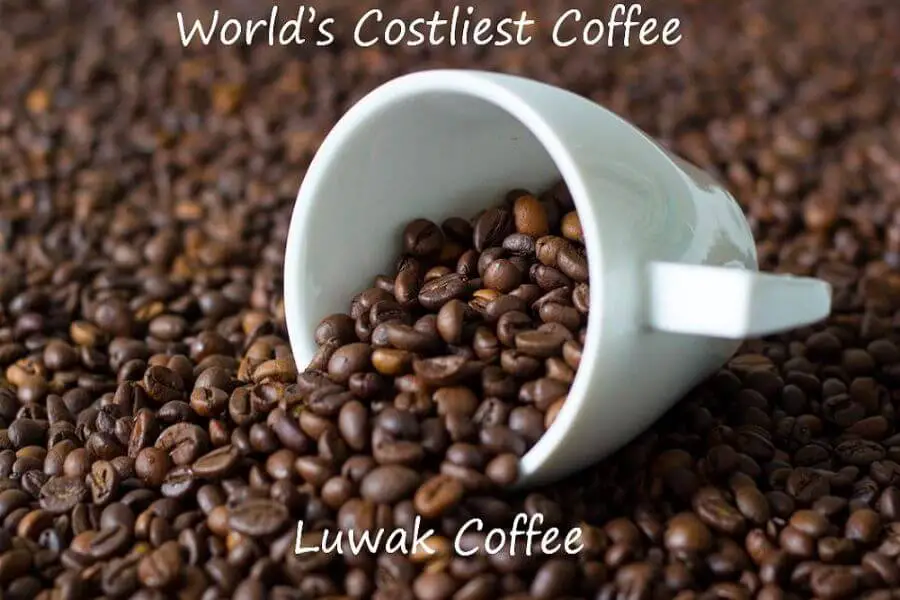
So what makes this World’s Most Expensive Coffee named Kopi Luwak so super expensive in Indonesian.
Kopi in Indonesian language translates to Coffee and Luwak is an Asian Palm Civet (an animal). Yes, you read it right!
As the name suggests, the Civet has to do everything with the coffee. These Civets live in the South-East Asian forests and feed on the wild coffee berries.
However, they are very selective about the berries they consume- choosing only the ripest berries. They digest the fleshy pulpy part and poop out the partially digested beans.
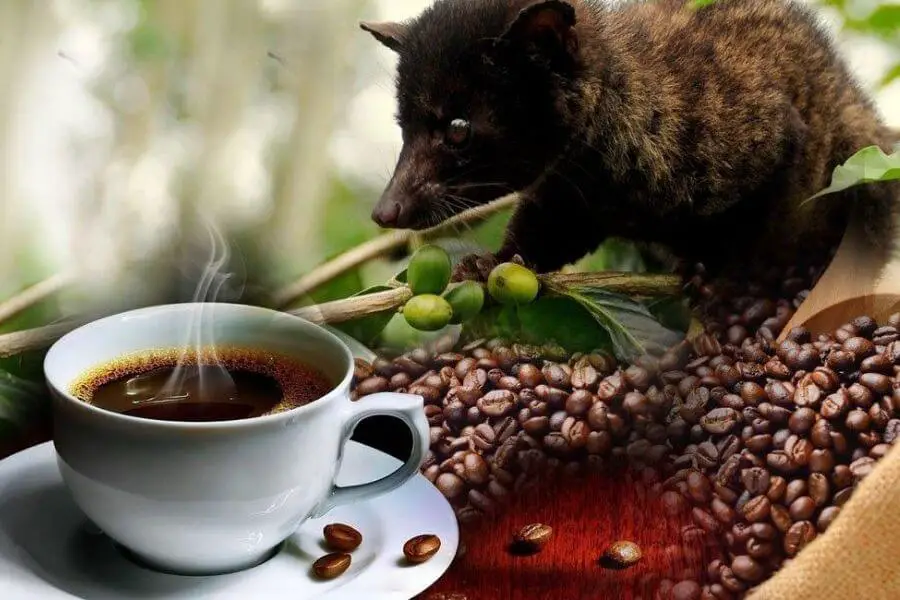
These berries undergo certain changes with the Civets digestive enzymes, which reduces the acidity or bitterness of the coffee to produce a smoother mellower brew.
The feces are then collected- thoroughly washed, dried, roasted and brewed.
Now, why would someone go looking for animal poop?
Indonesia was a Dutch colony since 1600. In early 1700, the Dutch established the cash-crop plantations. These included coffee plantations in Indonesia’s Sumatra and Java Island. The Indonesian workers on Dutch coffee plantations were forbidden to collect any coffee berries for themselves.
So, they collected the coffee beans from the Civet cat droppings that entered the plantations to eat the coffee berries, cleaned and roasted the beans to make their own coffee.
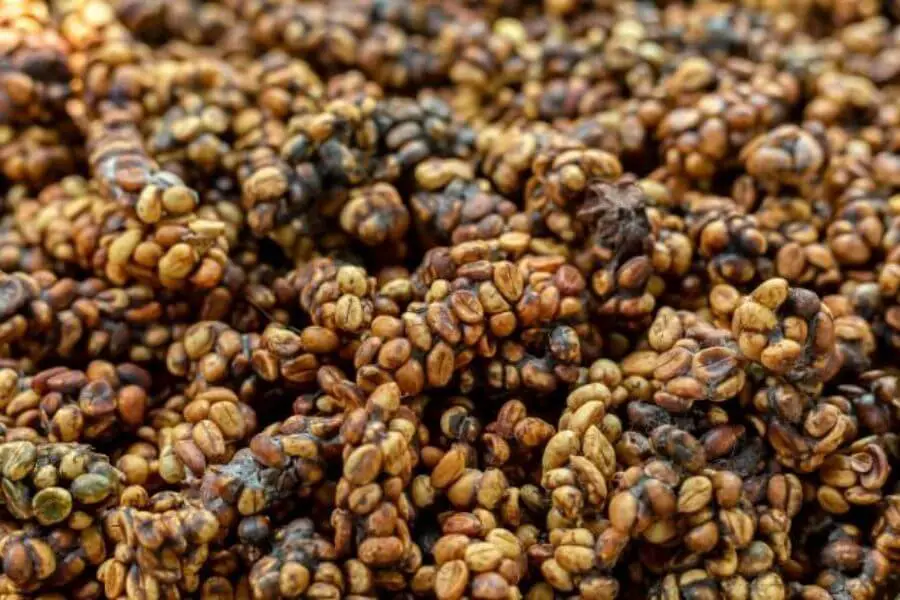
The Dutch plantation owners soon became a fan of the rich aroma and smooth taste of this coffee and started producing Coffee Luwak commercially.
The process of collecting the droppings is time-consuming and costly, contributing to make it the most expensive coffee in the world.
But this process too has a dark side. In order to mint money and satisfy global demands of the coffee, the Civets have to bear the brunt of it each day.
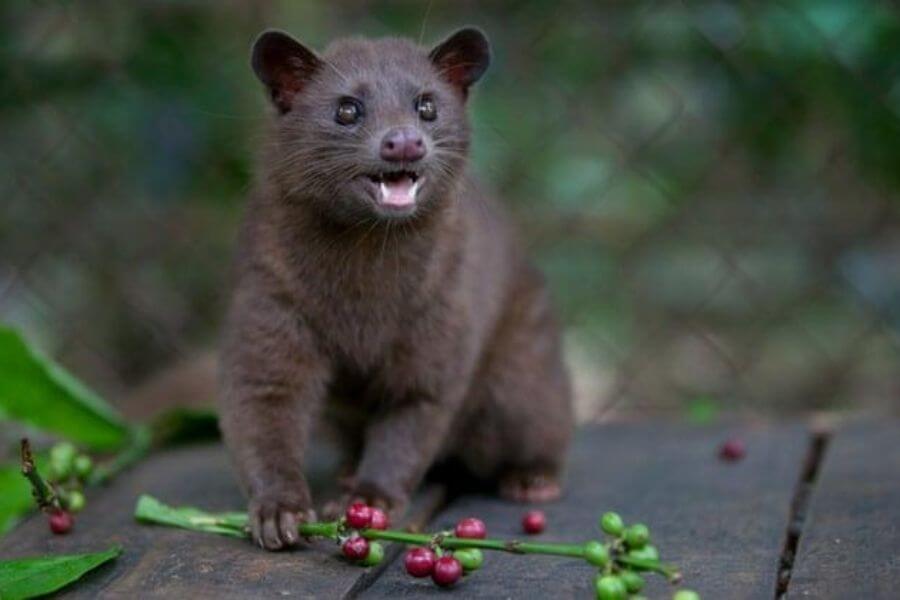
Many suppliers keep the Civets caged under unhygienic conditions and feed them a restricted diet of old coffee berries, which also degrades the quality of the produce, as the berry selection factor by Civets is not considered.
These nocturnal creatures are also traumatized as they are exposed to daytime light and noise from the tourists. Many of them have no access to clean water and no interaction with other Civets.
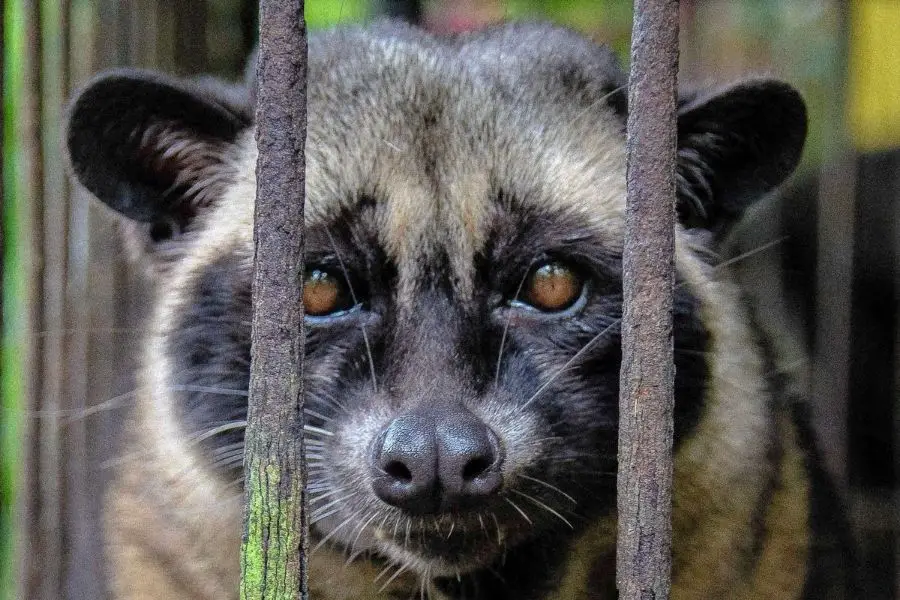
They suffer mental distress- incessantly pacing and gnawing on their limbs and succumb to illness and death. The industry has become increasingly commercial, abusive and fake, as some of the coffee is from caged Civets who are kept in inhumane conditions and the coffee ends up being labeled as Wild Civet Coffee. Whereas the Civet are no more wild instead are caged.
My personal advice is to avoid it, as the World’s Most Expensive Coffee comes from a caged landscape.



